“I got sick…I got an infection,” said Apoloma B. “They (doctors) started to give me dialysis. My last day (of dialysis treatment) was on a Thursday, and on Friday, they told me they had an organ for me.” Apoloma was among the dozens of patients who shared their stories of survival and concern at a recent Illinois Transplant Fund meeting in Chicago’s Little Village neighborhood.
It was the first time since the COVID-19 pandemic that the ITF hosted such a community conversation. Like Apoloma, the organ transplant patients’ stories focused on the jubilation of getting a new chance at life and the worry over how to pay for the high cost of medicines and aftercare medical visits.
“I’ve been looking for options, but with no luck,” Adrian told IL Latino News about losing the post-transplant medications needed to maintain the transplanted organ and necessary follow-up care with doctors. Adrian is a 35-year-old undocumented immigrant living in Edgewater who received a kidney and pancreas transplant two years ago under the coverage of the ITF. His last name is redacted because of his undocumented status.
Adrian was featured in the first part of a multiple-part series on health equity. The notion that everyone should have a fair opportunity to attain their full health potential irrespective of their social, economic, or demographic circumstances — has long been an intense focus. However, the narrative around health equity is often oversimplified in news coverage, limiting the understanding of the complexities involved in effectively addressing this social problem within the Latino undocumented community. IL Latino News, as part of a fellowship with the Solutions Journalism Network, is applying Complicating The Narrative strategies to tell more accurate, richer, and complete stories about the responses to chronic illness.
SUGGESTION: Complicating The Narrative On Health Care For Undocumented Immigrants

The Debate over Extending Health Benefits to Undocumented Immigrants in Illinois
Hispanic Americans are less likely than people of other racial and ethnic backgrounds to have health insurance, reports the Pew Research Center. As of 2021, the uninsured rate among Hispanics under age 65 was 19%, according to KFF, formerly known as the Kaiser Family Foundation. That was higher than the share among Black (11%), White (7%) and Asian Americans (6%). (These figures include rates among children as well as adults.)
The discussion surrounding the provision of health benefits to undocumented immigrants in Illinois has become a contentious and polarizing issue. While proponents argue that it is a matter of equity and public health, opponents raise concerns about the financial burden and potential consequences of immigration policy.
Latinos in the United States face numerous barriers to achieving health equity, including language and cultural barriers, lack of health insurance, discrimination, and limited access to quality healthcare facilities. These disparities have been further exacerbated by the COVID-19 pandemic, which has disproportionately affected Latino communities.
Controversy has arisen in Illinois over the past few months due to Governor J.B. Pritzker’s decision to reduce health coverage for numerous undocumented immigrants struggling with chronic illnesses. In 2020, the state extended coverage to all undocumented senior citizens through the Health Benefits for Immigrant Seniors Program. Furthermore, this program was expanded to encompass adults aged 42 years and above, providing them with necessary health coverage.
Nevertheless, in July 2023, the extension of coverage came to a halt, with enrollment for seniors being limited to 16,500 individuals. Additionally, Governor J.B. Pritzker’s decision in June introduced a copay for hospital visits, which can range from $100 to $250, as funding for these programs was scaled back.
“When people don’t have access to primary and preventive care, it doesn’t mean they don’t get sick,” said Tovia Siegel, Director of the Healthy Illinois Campaign. “It means that, in fact, they often end up with more serious health conditions that could have been treated if they had regular access to care, and (because of this) they often end up in the emergency room. And that’s more costly for the individual and for the healthcare system overall.”
One of the primary arguments in favor of providing state health insurance to undocumented immigrants is the potential for improved public health. Ensuring access to healthcare services for all residents, regardless of immigration status, can help prevent the spread of infectious diseases, manage chronic conditions, and promote preventive care.
Opponents of extending state health insurance to undocumented immigrants often emphasize the potential financial strain on states. Limited resources and existing budget constraints may make it difficult to provide healthcare coverage to all residents, leading to concerns that citizens and legal residents may have to bear the burden.
State Senator Sally Turner, a Republican representing the 44th District, supports Governor Pritzker and argues that rolling back these programs is necessary to address the budget deficit. She believes that maintaining a balanced budget is crucial for upholding fiscal discipline and ensuring economic stability across the state.
“Instead of accepting the reality that the program has gotten out of hand, supporters and advocates wanted to expand the eligibility even further to all adults,” said Senator Turner. “That expansion would have increased the cost, again without any changes, by another $380 million.”
Washington Expands Access to Health Plans to Every State Resident Regardless of Immigration Status
Washington State stands out as one of the few states that provides access and state subsidies for health insurance through its exchange to all residents, irrespective of their immigration status. Under normal circumstances, the federal Affordable Care Act prohibits undocumented immigrants from purchasing healthcare through state exchanges. However, Washington secured an innovation waiver from the federal government last year, enabling the state to broaden its enrollment efforts. This waiver allows Washington to work towards enhancing health equity and minimizing racial disparities by expanding coverage access to the uninsured population, all while keeping costs in check. The waiver is set to be effective from 2024 to 2028.
“Disparities exist, and access to insurance coverage can often be the difference between life and death,” Wynne McHale, chief of staff at the Washington Health Benefit Exchange, told Crosscut. “We are glad to be opening our doors to everybody.”
An estimated 3.9% of Washington residents were undocumented immigrants in 2021, according to Pew data. Enrollment through the Washington State Healthplanfinder is open through Jan.
Washington Latino News is working on a solutions journalism story; investigating the response of granting healthcare coverage to undocumented immigrants.
“This is a celebration.”
Catalina Ramos-Hernandez, Program Coordinator, Illinois Transplant Fund

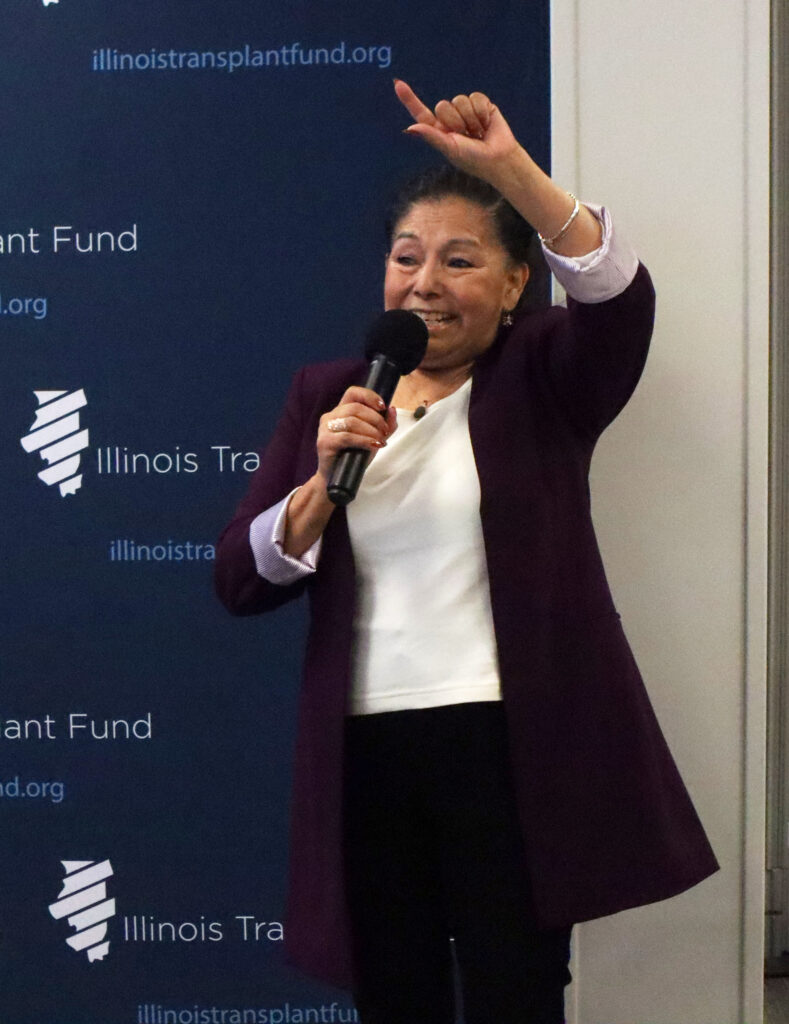



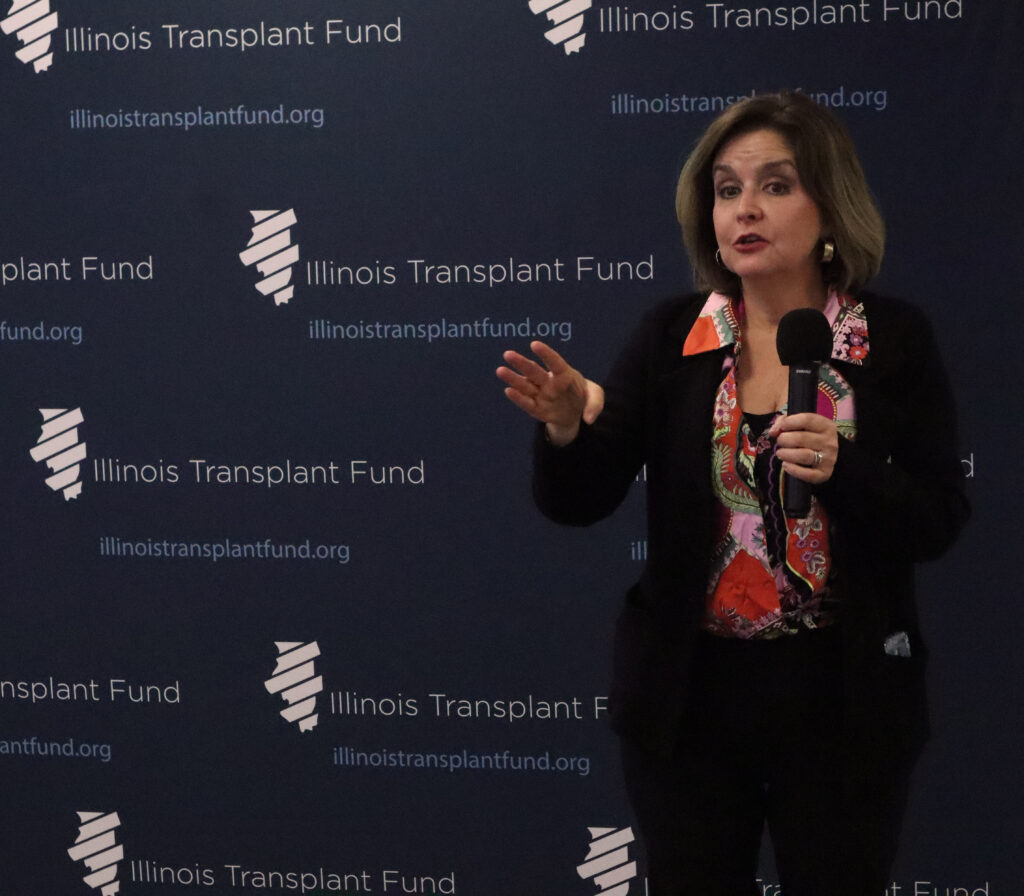
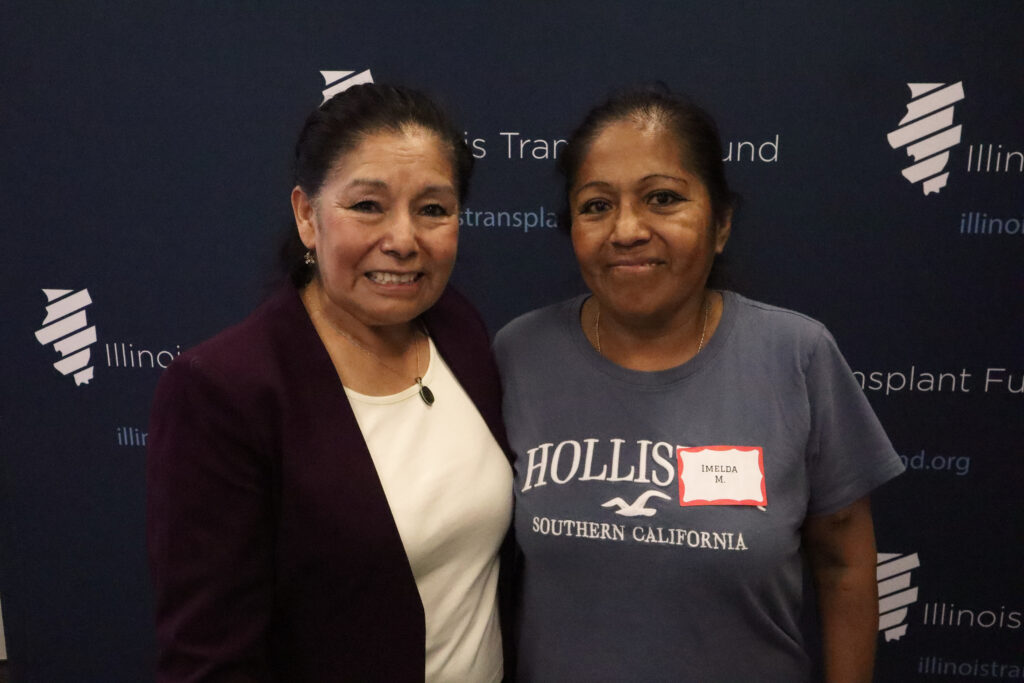
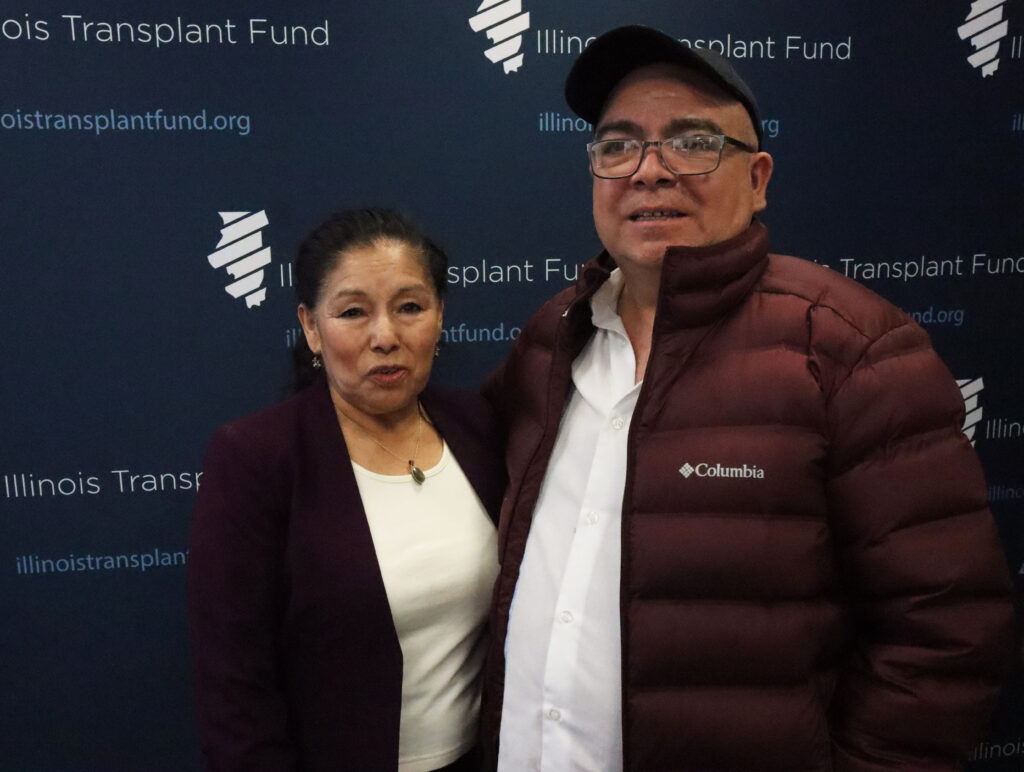
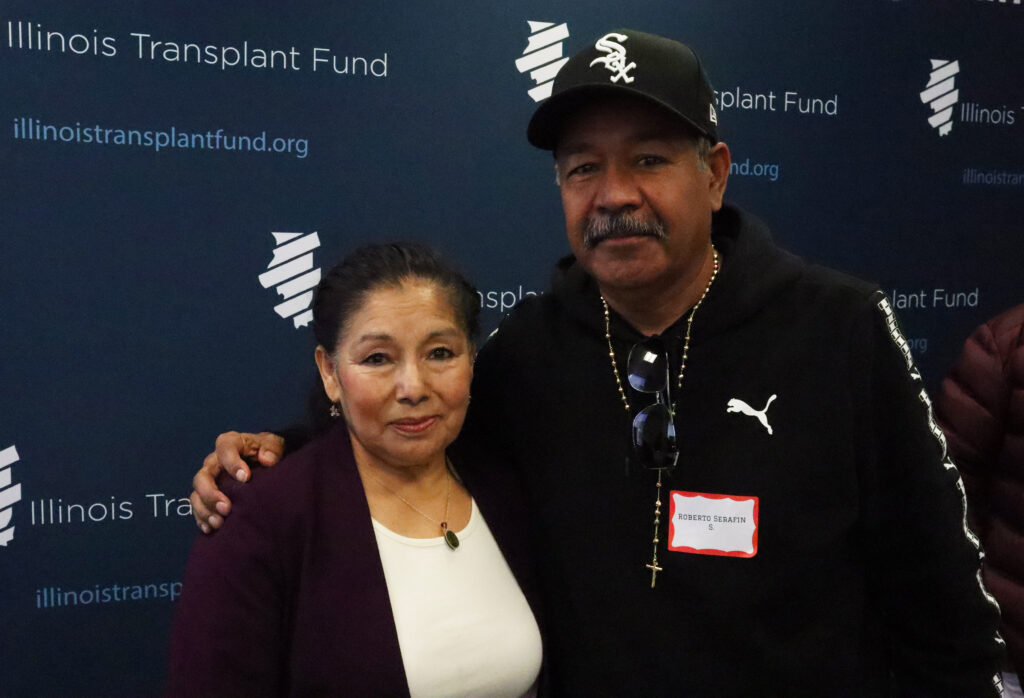
Since its founding in 2015, more than 500 Illinois residents have received a lifesaving organ transplant because of the ITF promise of insurance premium support.
“This is a celebration,” said Catalina Ramos-Hernandez, Program Coordinator with ITF, about the patient meeting. “There were several stories told and all of them were candidly shared. The one that touched my heart the most is when one patient described all the emotions and feelings the day of the transplant. I felt like (I was) living the moment with her.”
“It took me by surprise to see the overwhelming response,” said Dr. Beverly Ketel, ITF Board of Directors Chair. “The programming was on target – patients gained knowledge about ITF, met behind-the-scenes personnel, met other patients in similar situations.”
Patients needing an organ transplant must meet specific medical criteria and provide proof of long-term access to post-transplant medications required to preserve the transplanted organ and the patient’s life. ITF assists eligible patients with 100% of the monthly health insurance premium for three years.
Still Photos and video by Esteban Balta, Senior at George Westinghouse College Prep. Esteban is an aspiring Photo Journalist.
Video shot and edited by Isabella Balta, Sophomore at Columbia College Chicago. Isabella is a Film major.
Editor’s Notes: Isabella and Esteban are the children of Hugo Balta, co-owner and publisher of IL Latino News. He is a member of the ITF board.
Hugo is an organ donor. Last year, he donated one of his kidneys to his wife, Adriana. The transplantation was the second one for her as she underwent a liver transplant nearly 20 years ago.
Adriana is co-owner and General Sales Manager of IL Latino News. She was one of the guest speakers at the community conversation hosted by ITF on November 18, 2023.
